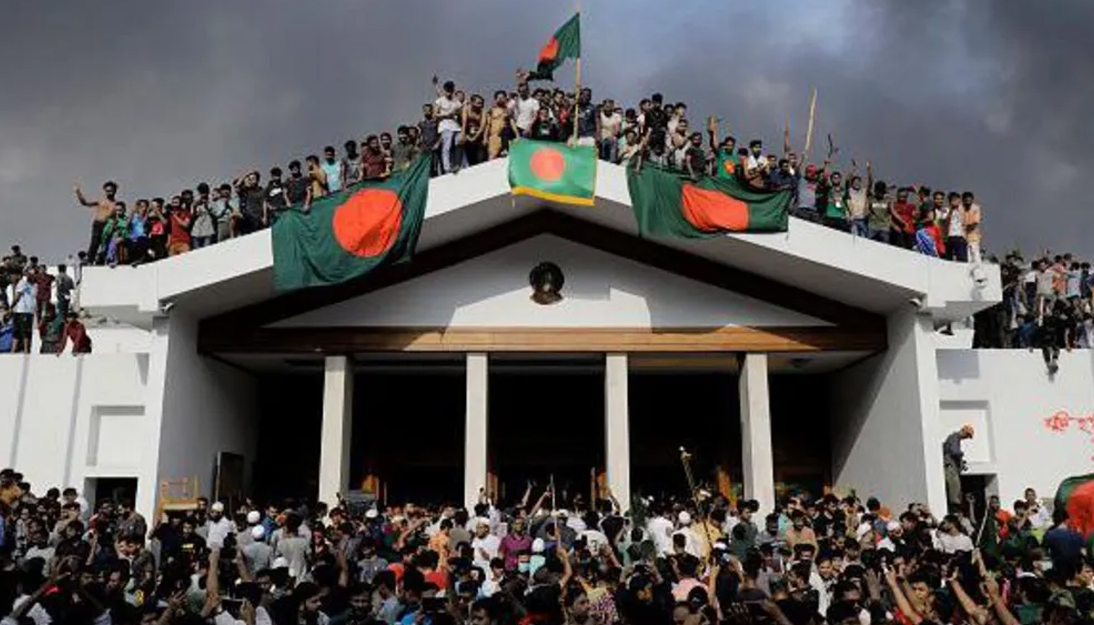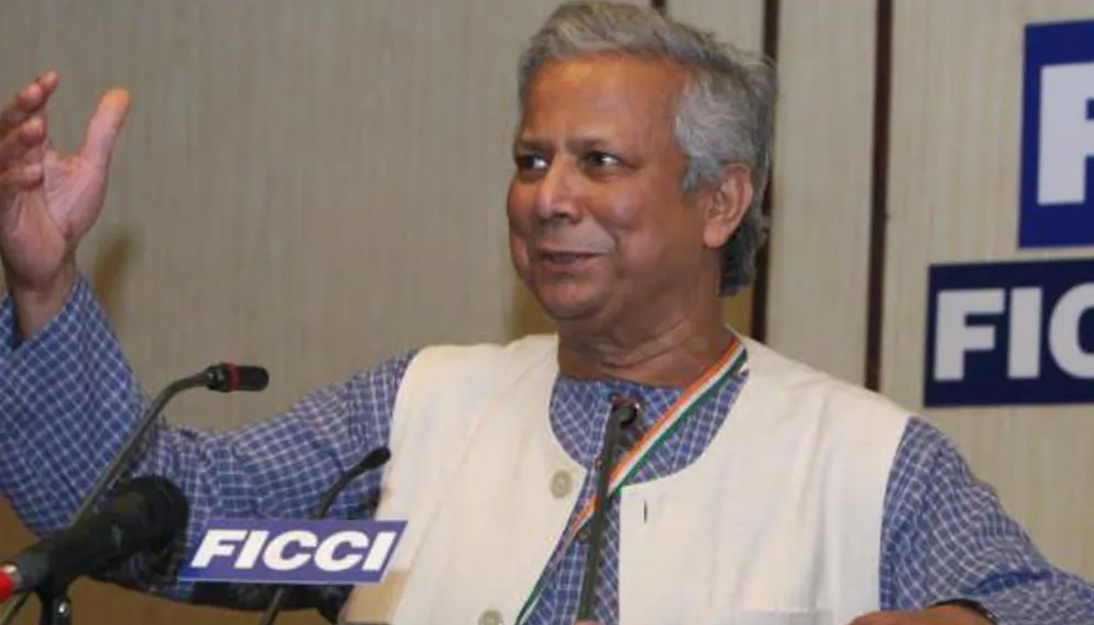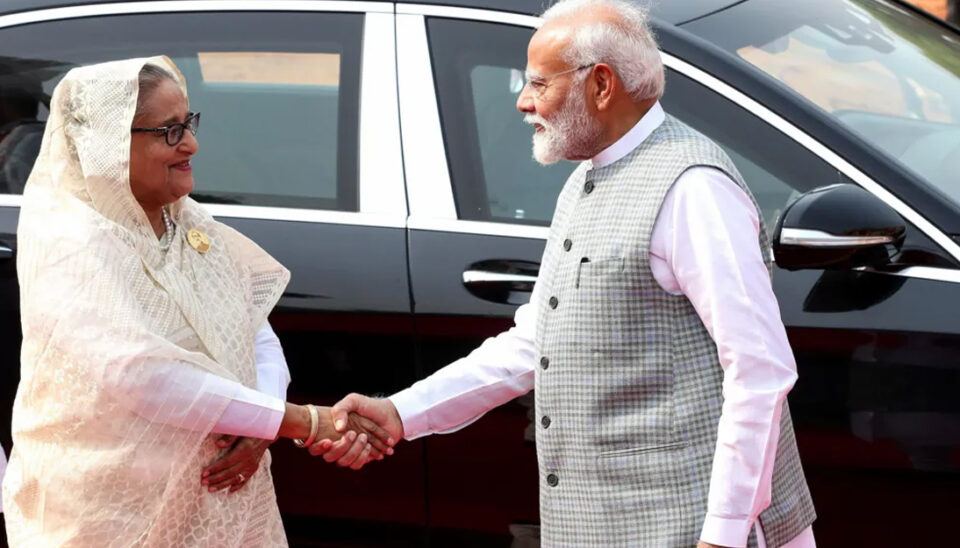Sheikh Hasina’s Asylum Struggles and Their Impact on India-Bangladesh Relations
Nearly a month has passed since former Bangladesh Prime Minister Sheikh Hasina made a sudden and dramatic exit from her country, landing at a military base near Delhi on August 5. Her ouster followed weeks of student-led protests that escalated into nationwide unrest. Initially expected to stay in India briefly, reports suggest her efforts to seek asylum in the UK, US, and UAE have so far been unsuccessful.
Hasina’s prolonged stay in India poses challenges for New Delhi, especially in maintaining a robust relationship with Bangladesh’s new interim government. For India, Bangladesh is more than just a neighboring country; it is a key strategic partner, particularly concerning border security in the northeastern states.
The two nations share a 4,096 km (2,545 miles) porous border, which has historically allowed armed insurgent groups from India’s northeastern regions to cross into Bangladesh for refuge. After Sheikh Hasina’s Awami League took power in 2009, her government cracked down on these ethnic militant groups and resolved several border disputes with India.
While border security is a cornerstone of the India-Bangladesh relationship, economic ties have also flourished under Hasina’s 15-year tenure. Trade relations and connectivity improved significantly, with India gaining road, river, and rail access through Bangladesh to transport goods to its northeastern states. Since 2010, India has extended over $7 billion in credit to Bangladesh for infrastructure and development projects.

However, Hasina’s abrupt departure means that New Delhi must work diligently to preserve these gains. Pinak Ranjan Chakravarty, a former Indian High Commissioner in Dhaka, acknowledges the setback but insists that India must collaborate with the interim government in Dhaka because “there is no choice” and “you can’t dictate what they do internally.” Prime Minister Narendra Modi has already reached out to interim leader Muhammad Yunus in an effort to maintain strong ties.
Nevertheless, India faces the challenge of addressing the resentment in Bangladesh over its unwavering support for Hasina and her Awami League over the last 15 years. Many Bangladeshis attribute their frustration to India’s quick endorsement of three controversial elections won by Hasina’s party amid allegations of widespread vote-rigging.
With Hasina’s departure, India’s “neighborhood first” policy has suffered another setback, following similar resistance from the Maldives and Nepal. Analysts warn that India cannot afford to lose influence in another neighboring country if it wants to maintain its status as a regional powerhouse, especially with China vying for influence in the region.
Last year, Mohamed Muizzu won the Maldivian presidency on an anti-India platform, highlighting the growing discontent. Debapriya Bhattacharya, a senior economist with the Centre for Policy Dialogue in Dhaka, suggests that India must introspect on its regional policy. He emphasizes the need for India to consider the perspectives of its regional partners more seriously, not just in Bangladesh but across the region.
One of the criticisms leveled against India is its failure to engage with other political parties in Bangladesh, particularly the Bangladesh Nationalist Party (BNP). Abdul Moyeen Khan, a senior BNP leader, describes this as a “strategic blunder,” adding that if free and fair elections are held in Bangladesh soon, the BNP is confident of victory.

This scenario presents a diplomatic challenge for India, as there is a perceived trust deficit between New Delhi and the BNP, led by Begum Khaleda Zia, who has served as Prime Minister twice before. Zia, who has spent much of her recent years in jail on corruption charges she denies, has been released and is recovering from illness. Moving forward, both Delhi and BNP leaders will need to work through their differences.
During the BNP-led coalition government from 2001 to 2006, India-Bangladesh relations deteriorated, with New Delhi accusing Dhaka of harboring insurgents from India’s northeast. Additionally, Hindu leaders in Bangladesh reported a series of attacks, including murder, looting, and rape, by Islamist parties and the BNP following the 2001 election results. The BNP denies these accusations and has called for a policy shift from India to foster better relations.
Another contentious issue between the two countries is the sharing of water resources from the 54 rivers they share. Recent floods in eastern Bangladesh, triggered by heavy rains, fueled suspicion and anger. Many believed that India deliberately released water from a dam in the night, causing the floods that affected millions, although these claims are unfounded.
India now faces the challenge of mending relations and reassessing its regional strategy to maintain its influence and ensure stability in its neighborhood.

